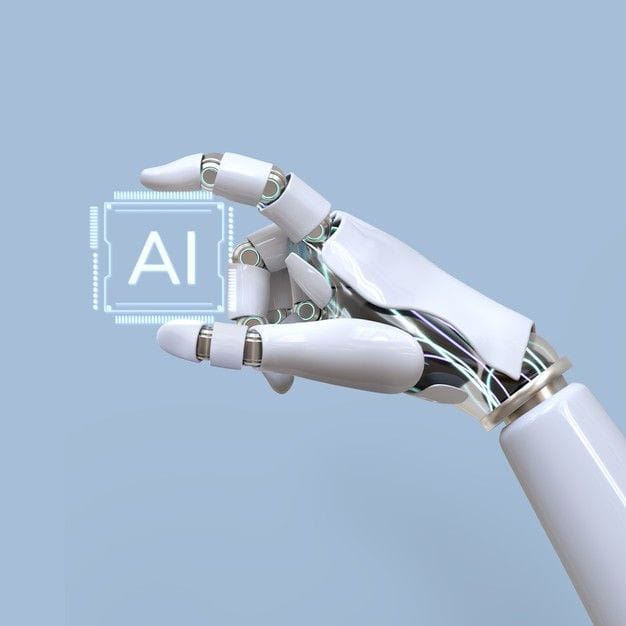Why Cybersecurity Matters in 2025 and Beyond
As we step into 2025, the digital world continues to evolve at a rapid pace, shaping everything from the way we work and communicate to how we manage our health and finances. While these technological advancements bring numerous benefits, they also introduce new risks. With our increasing reliance on digital systems, the importance of cybersecurity has never been more pressing. Here’s why it’s essential to prioritize cybersecurity now and in the years ahead.
1. The Growing Threat of Cyberattacks
Over the past few years, cyberattacks have become more frequent and more sophisticated. Ransomware, data breaches, and advanced persistent threats (APTs) are just a few examples of the growing risk businesses and individuals face. As technologies like the Internet of Things (IoT), 5G networks, and artificial intelligence (AI) expand, they create new vulnerabilities that cybercriminals can exploit.
AI itself is being used to launch more automated and harder-to-detect attacks, making the landscape even more challenging. As we move into 2025, the threat environment will continue to evolve, and cybersecurity will need to adapt quickly to stay one step ahead.
2. The Importance of Data Privacy
In today’s data-driven world, protecting personal and sensitive information is crucial. From financial records to medical data, the information we store online is increasingly vulnerable to theft and misuse. In 2025, stricter data protection regulations will likely be in place, and businesses will need to ensure they comply with evolving laws like the GDPR to avoid costly penalties.For individuals, a breach of personal data can lead to identity theft or fraud. For businesses, the impact can be even more severe, including loss of customer trust, financial damage, and long-lasting reputational harm. The protection of data—both personal and corporate—will continue to be a top priority.
3. Securing Critical Infrastructure
Many industries, such as energy, healthcare, and transportation, rely on digital systems that are increasingly interconnected. This makes them prime targets for cyberattacks. A successful breach could disrupt services, cause financial losses, or even jeopardize national security.
In 2025, sectors like energy grids, autonomous vehicles, and telemedicine will rely even more heavily on technology, which means the need for strong cybersecurity will only increase. Ensuring the security of these systems isn’t just a matter of business—it’s about protecting the public and keeping essential services running smoothly.
4. The Remote Work Shift
The COVID-19 pandemic led to a massive shift toward remote work, and that trend shows no sign of slowing down in 2025. Many organizations have embraced hybrid or fully remote work models, which, while offering flexibility, also pose cybersecurity risks. Employees now access company data from a variety of devices and networks, many of which may not be as secure as the corporate infrastructure.
As remote work continues, businesses must implement stronger security measures, such as secure VPNs, encrypted communications, and multi-factor authentication, to ensure that sensitive information remains protected. Educating employees about best practices for online security will also be key to preventing breaches.
5. AI and Automation: Double-Edged Swords
While AI and automation have revolutionized industries, they’ve also created new challenges for cybersecurity. On one hand, AI is a powerful tool for defending against cyberattacks—helping to detect threats and respond in real time. On the other hand, cybercriminals are leveraging AI to automate attacks, making them faster, more efficient, and harder to defend against.As we move into 2025, AI-driven threats will require more advanced and proactive defense mechanisms. Cybersecurity strategies will need to integrate cutting-edge technologies like machine learning to predict and mitigate attacks before they happen.
6. The Growing Need for Cybersecurity Professionals
As cyber threats become more complex, the demand for cybersecurity professionals is rising. Currently, there’s a significant shortage of skilled workers in the field, and that gap is expected to grow as cyber threats continue to escalate. By 2025, the shortage could reach over 3 million cybersecurity jobs globally.
Addressing this skills gap will require investment in education and training programs to cultivate the next generation of cybersecurity experts. This includes not only traditional tech talent but also diversity in the field, which brings fresh perspectives and innovative solutions to the table.
7. Cybersecurity as a Global Priority
Cyberattacks are no longer just a local concern—they’re increasingly part of the global geopolitical landscape. State-sponsored cyberattacks are becoming more common, with nations using cyber tactics to interfere with elections, steal sensitive information, or disrupt economies.
As digital threats cross borders, international cooperation will be essential in combating cybercrime and maintaining global stability. Nations will need to collaborate on setting cyber norms, sharing intelligence, and building a collective defense to prevent cyber conflicts from escalating into full-scale war.
As we look ahead to 2025 and beyond, cybersecurity will continue to be a fundamental aspect of our digital lives. With new technologies come new risks, and the growing sophistication of cyberattacks means that businesses, governments, and individuals must remain vigilant. Cybersecurity is no longer a luxury—it’s a necessity.
To stay ahead of evolving threats, we must invest in new technologies, build a skilled cybersecurity workforce, and ensure that security is embedded in every aspect of our digital infrastructure. By doing so, we can protect not just our data and devices, but the very systems that keep our world functioning. In an increasingly connected world, cybersecurity is the foundation that enables us to innovate, grow, and thrive safely.






Thank you for the insightful article. As technology advances, the complexity of cyber threats makes strong cybersecurity strategies essential. I agree that a holistic approach, combining tech and human awareness, is key. Collaboration across sectors will be crucial for a secure digital future. Cybersecurity must be a priority for all organizations as we move into 2025 and beyond.
ReplyDelete